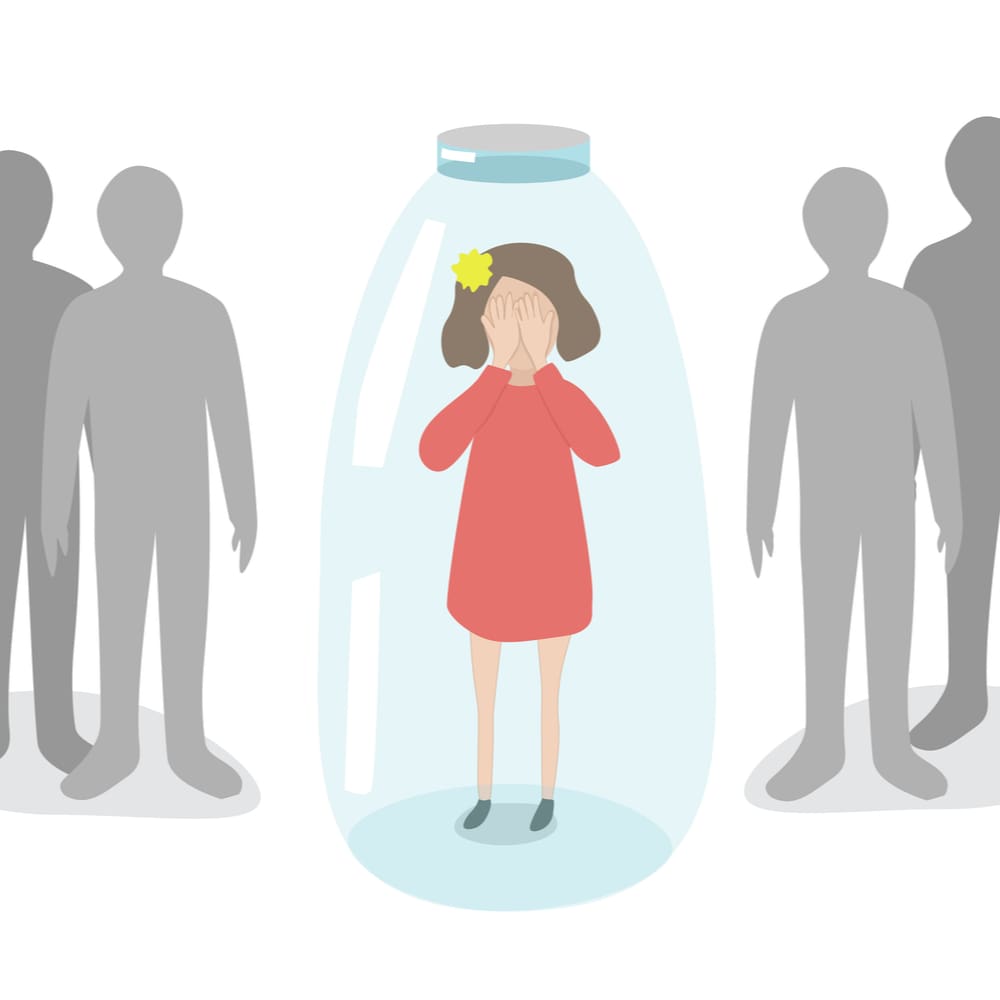Society has come a long way towards understanding people with mental illnesses, but mental health stigma still remains. Thankfully, we no longer try and separate those with mental illnesses into asylums that prevent them from interacting with society. That doesn’t mean we don’t still have a long way to go.
People suffering from bipolar disorder, anxiety, schizophrenia, and other mental health conditions still face stigma on a daily basis. In order to continue making the world a better place for those with mental health challenges, we have to understand what stigma is, how it affects us, and what we can do to make mental health stigma a thing of the past.
Contents
What Is Mental Health Stigma?

Experiencing stigma means you are viewed or treated differently because of something that makes you different than others. This thing is viewed as being a disadvantage compared to the norm. It can be the way you look, it can be the culture you’re from, and you can experience stigma due to a mental health condition.
Mental health stigma remains rampant in our society, and it can appear in many different forms. Different kinds of mental health stigma include:
- Structural Stigma includes the government and policies that place restrictions on those with a mental illness, like medical insurance that doesn’t cover mental illness treatment.
- Social Stigma refers to ways people support stereotypes about those with mental illness. Stories in mass media can contribute to social stigma.
- Self-Stigma involves what a person perceives about their own mental health, and it can include distortions about what others think.
Stigma often arises from a lack of understanding. In the case of people with mental health challenges, it can be even harder to understand what they’re going through because their illness isn’t something we can see. Beliefs still persist among friends, family members, and society that a person suffering from a mental illness should be able to overcome their challenges on their own, even though the causes of mental illness can include biological factors.
The Effects of Mental Health Stigma
The effects of mental health stigma are far-reaching. For many, the effects begin with self-stigma, where you believe that you’re different and that others don’t understand you. That can be lonely and painful. And it can be especially dangerous for those suffering from depression, because it can cause them to withdraw from loved ones.
Dealing with stigma can lead to some powerful emotions, like shame, and it can cause you to develop co-occurring disorders that can make treating mental illness more difficult.
Stigma can lead to harassment, bullying, and in extreme cases, even violence. Some people with a history of mental illness may find it difficult to procure housing or a job.
Friends and family members of those with mental illnesses often feel the effects of stigma. Supporting someone who has withdrawn emotionally, especially if you don’t know why, can be extremely difficult. Of course, this does not place the blame upon the person with a mental illness. But it does complicate the situation and make resolving the issues even harder.
Moreover, stigma by association can be difficult for some loved ones to deal with. It occurs when stigma is extended to others who are linked with a person who has a mental illness. It can cause family and friends to separate themselves from loved ones for fear of being judged. Sadly, this often leaves people with mental health issues feeling even more alone.
Why You Shouldn’t Let It Stop You from Getting Help

One of the most challenging effects of mental health stigma is the fact that it can prevent you from getting the help you need. In a culture where mental illness is bad, it’s normal not to want to admit that you struggle with your mental health. But the longer you resist treatment, the more difficult it becomes to live with mental illness, and the more difficult it becomes to treat.
Tips for overcoming stigma and discrimination are explained below, but don’t think you have to overcome the stigma before you get the help you need. When you first enter mental health treatment, you can keep the details to yourself. What is important is that you get the help you need to live a happy, fulfilled life, whatever that means for you.
Tips for Overcoming Stigma and Discrimination
Although all mental health stigma is out of your control, there are things you can do to reduce its hold on your life.
There are many ways you can fight stigma associated with mental health, according to the National Alliance on Mental Illness. One of the most powerful ways to do this is to reduce or eliminate the self-stigma you experience. You can do this in many ways. It might mean proving to yourself that you can be a productive member of society by doing things like volunteering and catching up with friends, even if you don’t always feel like it.
Educating yourself can also help with self-stigma. Research your particular condition, its causes, and treatment options. You may feel better about your condition if you realize that you didn’t cause your mental illness, and by educating yourself, you can better educate the people around you about your condition.
Once you begin to feel comfortable about your diagnosis, you can help fight stigma and discrimination by being open and honest about your mental health. That might include telling other people about your diagnosis and struggles, as well as mentioning that you see a therapist or a psychiatrist.
Modeling compassion can help you fight stigma, as well as helping others who face mental health stigma. Speak with others who have a mental illness, especially if they’re living on the street, and consider volunteering your time to a mental health cause you’re passionate about.
The more you talk about mental health, the more normal it becomes, and the less it is stigmatized.
Overcome the Stigma and Seek Help
Whether you’re dealing with a mental illness, stigma surrounding your condition, or both, Port St. Lucie Hospital is here to help you recover. We offer a variety of mental health programs, and as part of our treatment, we can help you overcome the stigma you may be facing in your life. You can call us 24 hours a day, 7 days a week at (772) 335-0400, or you can fill out our online form and we can tell you more about our mental health services.


























